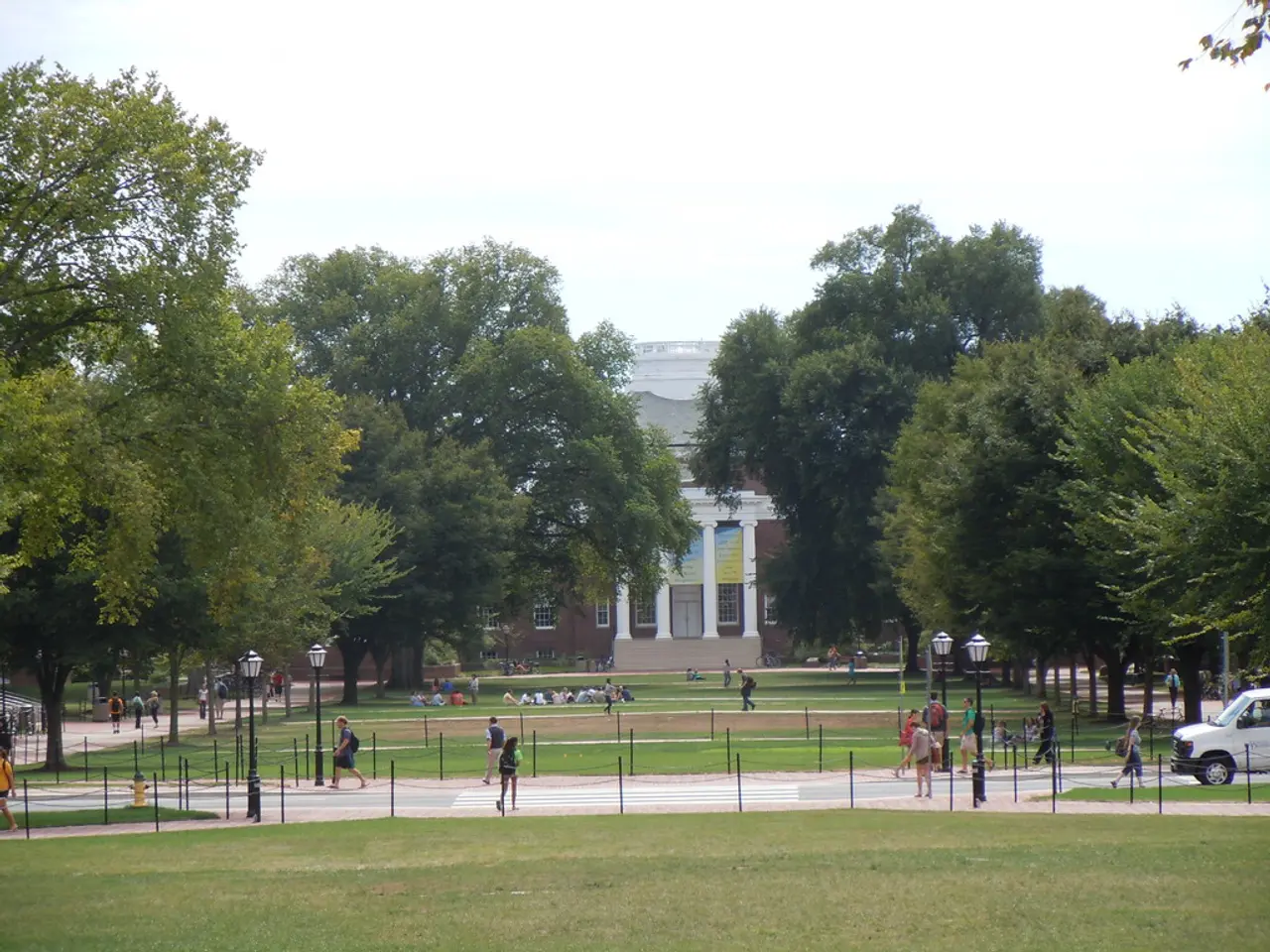Foreign student exodus may result in $1 billion revenue loss for American universities
In a significant development, the strict immigration policies under President Donald Trump's administration have negatively impacted the revenue of U.S. universities, primarily due to a decline in international students. The National Center for Education Statistics (NCES) has reported this information, highlighting various factors that contribute to this trend.
One of the primary reasons for the decline is the extensive visa bans and restrictions implemented by the Trump administration, particularly affecting student visas (F-1, J-1, M-1) for nationals from 19 countries, including China, India, and some Muslim-majority countries. These policies have led to visa processing difficulties, causing concerns among international students and deterring them from applying to U.S. universities [1][2][3][4].
The "Muslim Ban" and expanded travel restrictions have directly limited the pool of incoming international students, further exacerbating visa processing difficulties [3]. Border arrests have also affected the decision of international students to study in the United States, adding to the concerns and uncertainties faced by these students [5].
The rapid and sometimes unexpected executive actions have created significant confusion and uncertainty among international students regarding visa applications, work authorizations, and travel. Many students have hesitated to apply or delayed enrollment, fearing deportation or legal challenges [1].
These policies have led to a measurable decline in international student enrollments, a key source of revenue for many universities. International students often pay full tuition rates, which are significantly higher than in-state tuition, making them financially important to institutions [1]. Consequently, the decline in international student enrollment translates to reduced tuition revenue and diminished funding for programs supported by these students, adversely affecting the financial health of many U.S. universities [1].
In addition, the broader immigration enforcement climate, including revoking Temporary Protected Status (TPS) and heightened immigration data collection and monitoring, further contributes to an environment perceived as hostile. This discourages international students from choosing U.S. institutions [2].
The decline in international students is projected to result in a drop in revenue of at least 10% for many U.S. universities, with about 75% of institutions at risk of losses this year [6]. The stated goal of the largest deportation program in history by Donald Trump may potentially increase the risk of campus arrests of migrants, further deterring international students and leading to a further decline in international students in American universities [7].
The decline in international students and the resulting financial implications underscore the impact of Trump's immigration policies on U.S. universities. The erosion of trust among international students in pursuing higher education in the United States is a significant concern, as international students make up over 15% of students in American universities [8]. The stated goal of the largest deportation program in history by Donald Trump may negatively affect border arrests of international students, cause concerns among international students, contribute to stricter student visa checks, and erode trust among international students in pursuing higher education in the USA [9].
- The "Muslim Ban" and expanded travel restrictions under President Donald Trump's administration, a part of the broader immigration policies, have directly limited the pool of incoming international students and contributed to visa processing difficulties.
- The stated goal of the largest deportation program in history by Donald Trump may potentially increase border arrests of international students, cause further concerns among them, and erode trust in pursuing higher education in the USA, thereby adversely affecting education-and-self-development and general-news.




